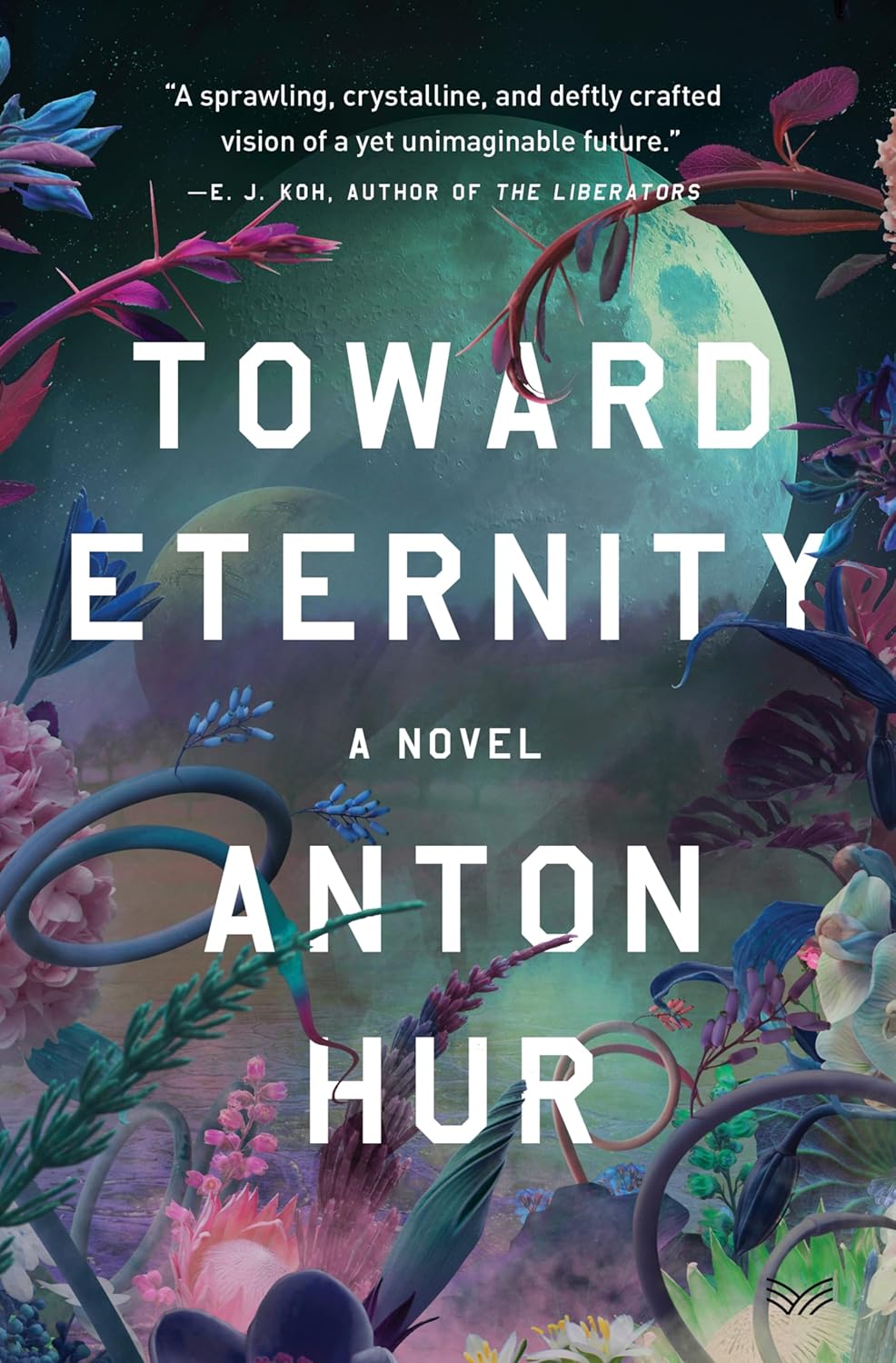Toward Eternity
Anton Hur was born in Stockholm, Sweden, and was subsequently raised in six different countries on four different continents, including British Hong Kong, Ethiopia, HarperCollins US Summer 2024 Adult Compilation the United States, and Thailand, but spent most of his time in Korea. He has worked as an interpreter and translator for more than two decades, and in 2022, was double- longlisted and shortlisted for the International Booker Prize, the first translator of color to do so. In 2023, his translation of Bora Chung’s Cursed Bunny was shortlisted for the National Book Awards. He divides his time between Seoul and the science fiction-y island of Songdo with his husband. ... Read more Read less
In a near-future world, a new technological therapy is quickly eradicating cancer. The
body’s cells are entirely replaced with nanites—robot or android cells which not only
cure those afflicted but leaves them virtually immortal.
Literary researcher Yonghun teaches an AI how to understand poetry and creates a
living, thinking machine he names Panit, meaning Beloved, in honor of his husband.
When Yonghun—himself a recipient of nanotherapy—mysteriously vanishes into thin air
and then just as suddenly reappears, the event raises disturbing questions. What
happened to Yonghun, and though he’s returned, is he really himself anymore?
When Dr. Beeko, the scientist who holds the patent to the nanotherapy technology,
learns of Panit, he transfers its consciousness from the machine into an android body,
giving it freedom and life. As Yonghun, Panit, and other nano humans thrive—and
begin to replicate—their development will lead them to a crossroads and a choice with
existential consequences.
Exploring the nature of intelligence and the unexpected consequences of progress, the
meaning of personhood and life, and what we really have to fear from technology and
the future, Toward Eternity is a gorgeous, thought-provoking novel that challenges the
notion of what makes us human—and how love survives even the end of that
humanity.
... Read more Read less










